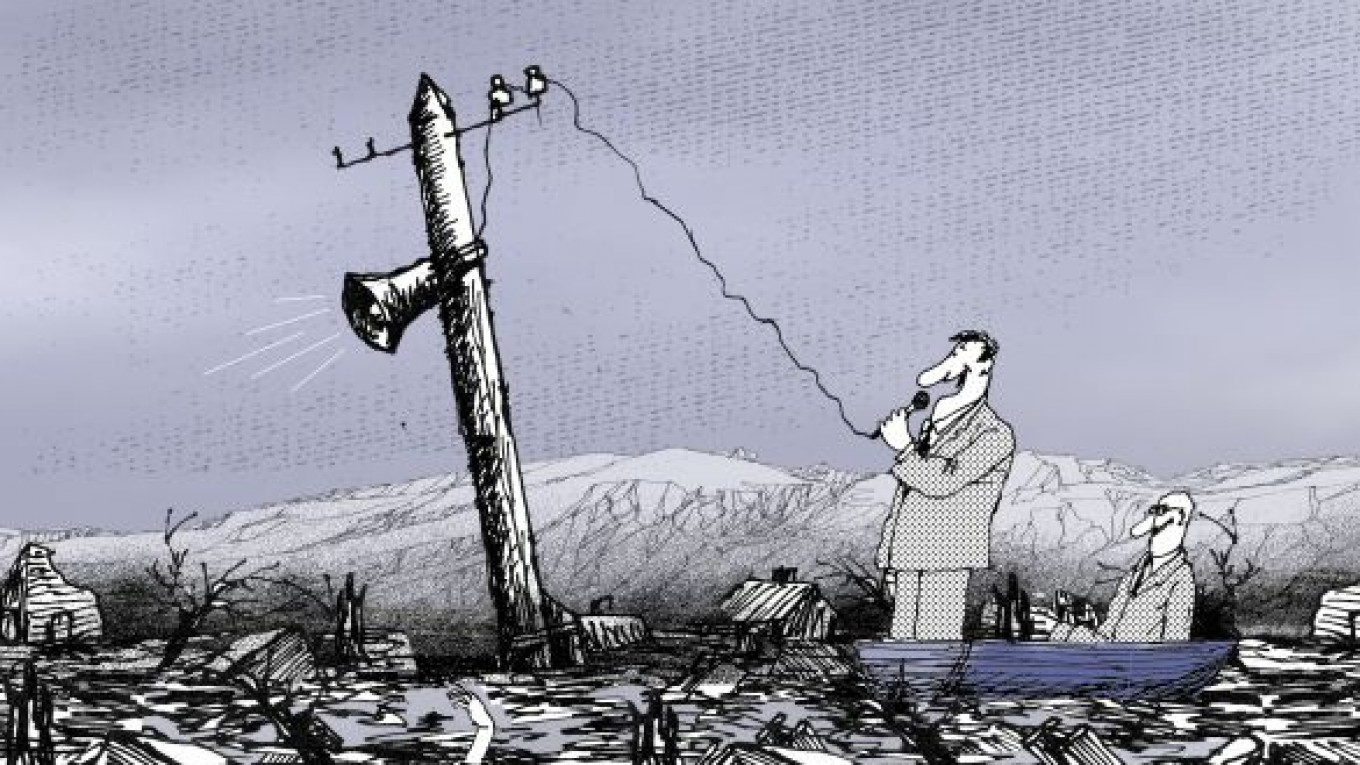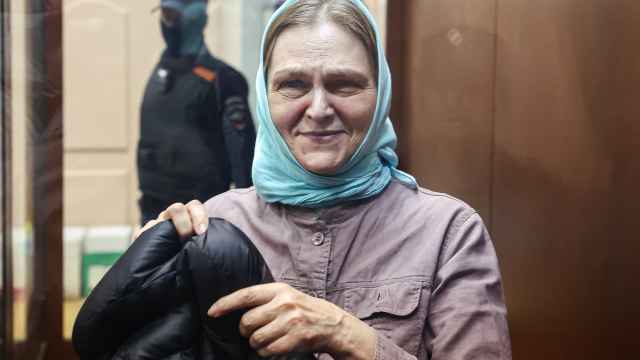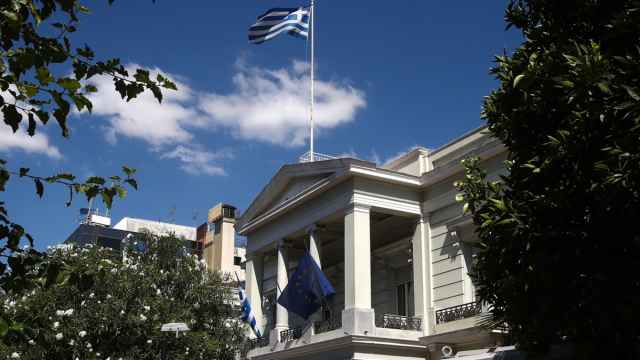The town of Krymsk has been wiped off the face of the Earth.
The official body count has topped 170, but that takes into account only the bodies that have actually been found. Krymsk residents believe that the figure could reach into the thousands. They are also certain that the flood was caused by water being released from the Naberdzhayevskoye reservoir. This was done, they say, as a control measure to avoid flooding President Vladimir Putin's dacha in Gelendzhik, a Black Sea coastal town located 60 kilometers from Krymsk, or the city of Novorossiisk, only 40 kilometers away.
In fact, the Neberdzhayevskoye reservoir is fully intact, but when the people distrust the authorities, they tend to believe conspiracy theories. There is a good reason why the people's trust has been completely undermined: The authorities knew at least six hours beforehand that disaster would strike, yet failed to issue a warning.
Major flash floods causing more than 100 deaths and catastrophic damage are rare occurrences. Rapid City in South Dakota was washed away by a flash flood on June 9, 1972. In all, 238 people died and 1,335 homes and 5,000 cars were destroyed.
One key difference with Russia, however, is that the Rapid City disaster could not happen again in the United States. After 1972, Rapid City officials transformed potentially dangerous locations into parks, restricting home-building in these areas. In addition, authorities set up a satellite-based, early-warning system in 1997.
In contrast, flooding disasters in Krymsk are nothing new. The city was hit by similar flash flooding in 2002, causing about 100 deaths. What's more, many residents have still not received the promised financial compensation from that tragedy.
The authorities admit that they received flash flood warnings around 10 p.m., and they say this was only four hours before the flood waters wiped out homes in Krymsk. (Critics and Krymsk residents say authorities had at least six hours to respond.) As soon as the authorities knew of the impending danger, electricity was cut off and, in all likelihood, the families of local officials were evacuated as a top priority. Lacking electricity and having received no warning of what was coming, residents lay down to sleep for the night.
The Krymsk mayor later looked Putin straight in the eyes and assured him that the local authorities had shown a rolling caption on television warning people of the danger. This was a brilliant idea, particularly considering the fact that the electricity had already been shut off and nobody could watch television. For his part, Putin did not fire the mayor on the spot or order that he be investigated for criminal negligence. In fact, Putin did not ask the mayor a single question regarding what had transpired. Krasnodar Governor Alexander Tkachyov went even further, saying: "What could we have done? Gone around knocking on every single door? That is impossible."
Can you imagine what would have happened to the governor of South Dakota if Rapid Creek had been flooded again in 1982 and he had dared to utter such rubbish?
There are very few natural disasters in the modern world, but there are many social disasters, In Russia, social disasters span the gamut from Kushchyovskaya — a town also located in the Krasnodar region where a gang of murderers, extortionists and blackmailers ruled with impunity for years in cahoots with local government officials — to the 2009 Sayano-Shushenskaya hydroelectric plant disaster that resulted in 75 deaths to the Krymsk flooding.
Officials happily reported that water could not have been released from the Neberdzhayevskoye reservoir because it only has an upper flood drainage sluice and that the lower drainage sluice cannot be regulated. Do they even realize what they are saying?
Any regulated reservoir located in the mountains must have a lower drainage sluice or spillway. A reservoir without a spillway is like a bathtub without a drain at the bottom. If your bathtub lacks such a drain, it increases the probability that you will flood your downstairs neighbors.
When the flood came, the upper sluice was employed, dumping additional water on the residents of Krymsk. Had a lower sluice been used beforehand, that radical measure would not have been necessary.
Another important aspect of the tragedy is buried in the ownership structure of the reservoir. In a country where the government likes to control everything, this particular hydroelectric structure, which exists exclusively on budgetary funds, is owned by the Yevraziisky Bank. That company is co-owned by former Deputy Energy Minister Stanislav Svetlitsky. He is currently implicated in a criminal case in which he and another member of the Yevraziisky board of directors, who is also a deputy chairman of Vneshekonombank, are accused of embezzling a 75 million ruble ($2.3 million) loan that the bank had issued to Yevraziisky. Apparently, these guys were much too busy with their own business to make urgently needed repairs to the reservoir and dam.
Hermitage Capital head William Browder once coined the phrase "untouchables," referring to a class of corrupt Russian officials and powerful businesspeople who are above the law. Now we have the "unsinkables" — a new group that includes Tkachyov and the owners of Yevraziisky Bank.
Yulia Latynina hosts a political talk show on Ekho Moskvy radio.
A Message from The Moscow Times:
Dear readers,
We are facing unprecedented challenges. Russia's Prosecutor General's Office has designated The Moscow Times as an "undesirable" organization, criminalizing our work and putting our staff at risk of prosecution. This follows our earlier unjust labeling as a "foreign agent."
These actions are direct attempts to silence independent journalism in Russia. The authorities claim our work "discredits the decisions of the Russian leadership." We see things differently: we strive to provide accurate, unbiased reporting on Russia.
We, the journalists of The Moscow Times, refuse to be silenced. But to continue our work, we need your help.
Your support, no matter how small, makes a world of difference. If you can, please support us monthly starting from just $2. It's quick to set up, and every contribution makes a significant impact.
By supporting The Moscow Times, you're defending open, independent journalism in the face of repression. Thank you for standing with us.
Remind me later.






